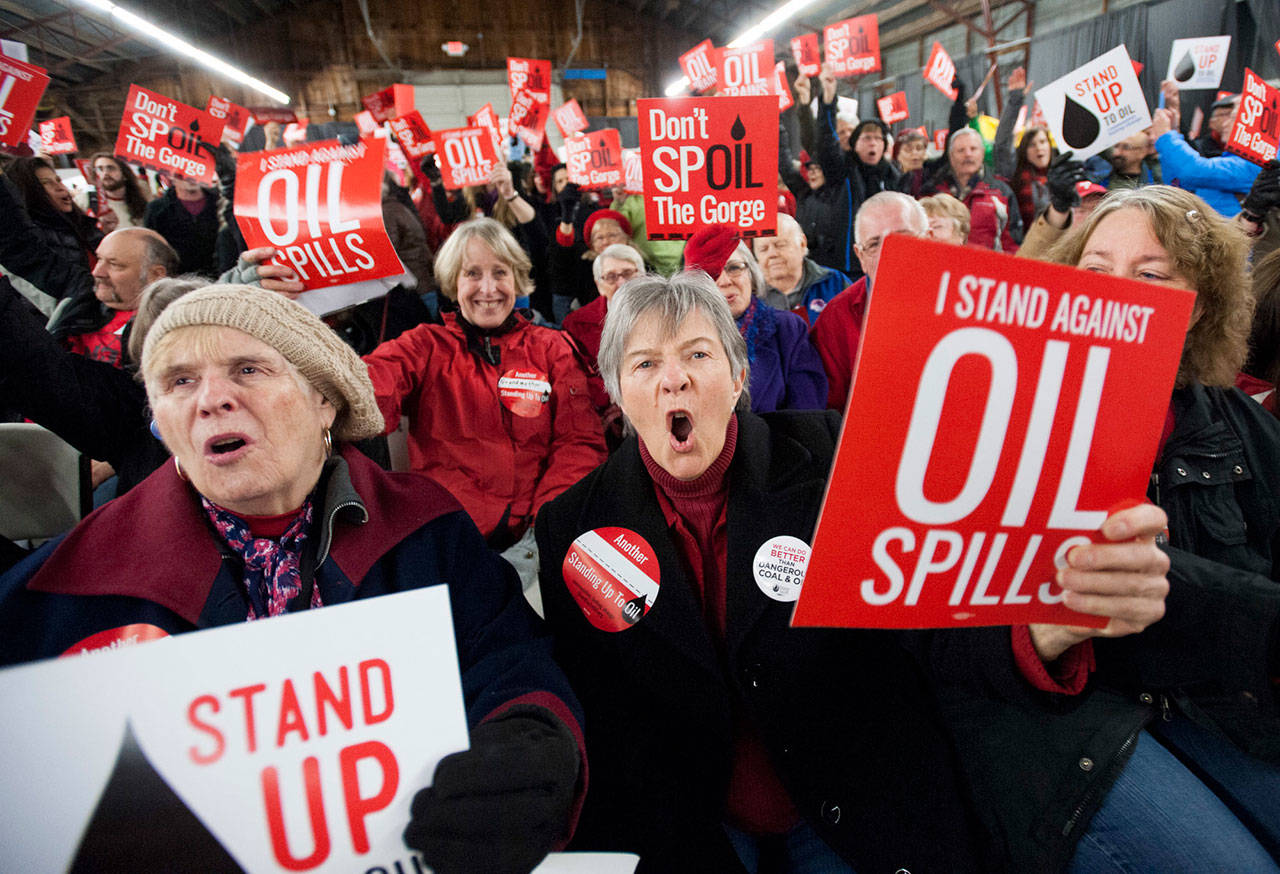By Phuong Le
The Associated Press
SEATTLE — A Washington state energy panel voted unanimously Tuesday to recommend that Gov. Jay Inslee reject a massive oil-by-rail terminal proposed along the Columbia River.
The Energy Facility Site Evaluation Council, which has been evaluating the project since 2013, said developers had not met their burden to show that the proposed port of Vancouver site was acceptable.
The panel will forward its recommendation to Inslee by Dec. 29. The Democratic governor will have 60 days to make a final decision.
The Vancouver Energy terminal, a joint venture of Tesoro Corp. and Savage Cos., would receive about 360,000 barrels of crude oil a day by trains at the port of Vancouver. Oil would temporarily be stored on site and then loaded onto tankers and ships bound for West Coast refineries.
Vancouver Energy said in an emailed statement Tuesday that it was extremely disappointed. The panel “has set an impossible standard for new energy facilities based on the risk of incidents that the Final Environmental Impact Statement characterizes as extremely unlikely,” said Jeff Hymas, a Vancouver Energy spokesman.
Roselyn Marcus, interim chair of the council, presided over the meeting in Olympia that lasted about 10 minutes.
She noted that the council weighed more than 250,000 public comments in “probably the longest process in this council’s history with issues of great significance that have never been faced by this council before.”
Marcus said state law requires project applicants to prove that the needs and benefits of the facility at the proposed site outweigh the negative impacts to the broad public interest.
Developers have said the terminal is needed to bring crude oil from North Dakota and other areas to a western U.S. port to meet growing fuel demands and future energy needs.
They’ve argued that it could be built safely and would secure a reliable supply of energy for the state.
Tribes, environmental groups and municipalities such as the city of Vancouver lined up against the project.
Opponents argued that the terminal would mostly benefit the energy needs of California — and potentially overseas markets in the future — while exposing Washington communities to all the public safety and environmental risks.
“The entire region is looking to Governor Inslee, now, to follow EFSEC’s lead,” Rebecca Ponzio, director of the Stand Up to Oil Campaign, said in a statement.
“We trust him to get this right,” she added.
An environmental study released last week found that the project poses a potential risk of oil spills, train accidents and longer emergency response times due to road traffic.
Many of the risks could be decreased with certain mitigation measures, but the study outlined four areas where it said the impacts are significant and cannot be avoided.
It identified those risks as train accidents, emergency response delays, negative impacts on low-income communities and the possibility that an earthquake would damage the facility’s dock and cause an oil spill.
While the “likelihood of occurrence of the potential for oil spills may be low, the consequences of the events could be severe,” the study said.

